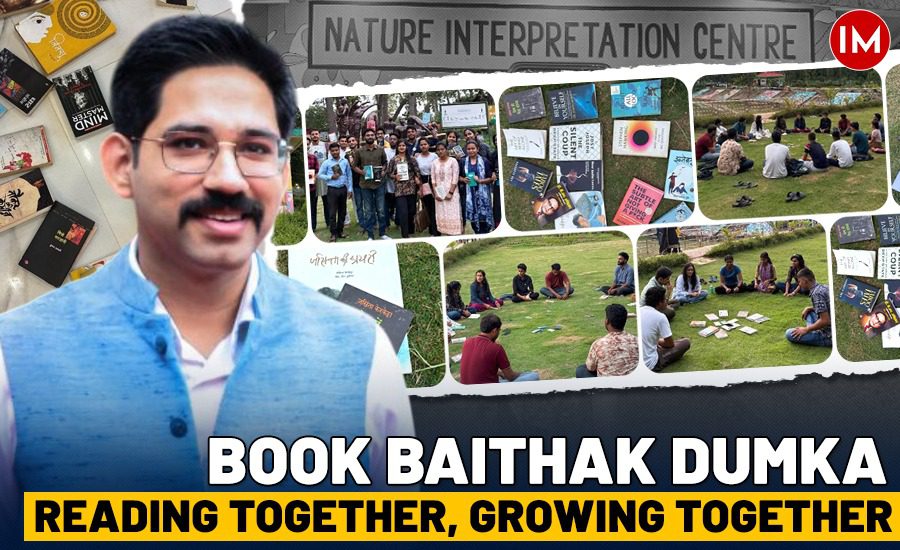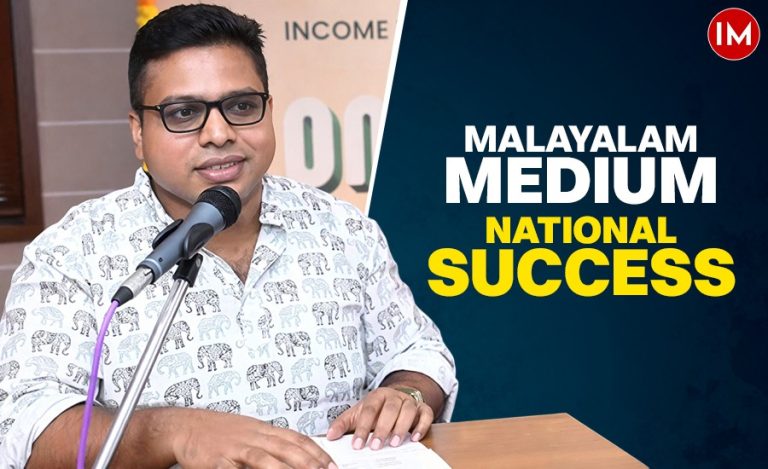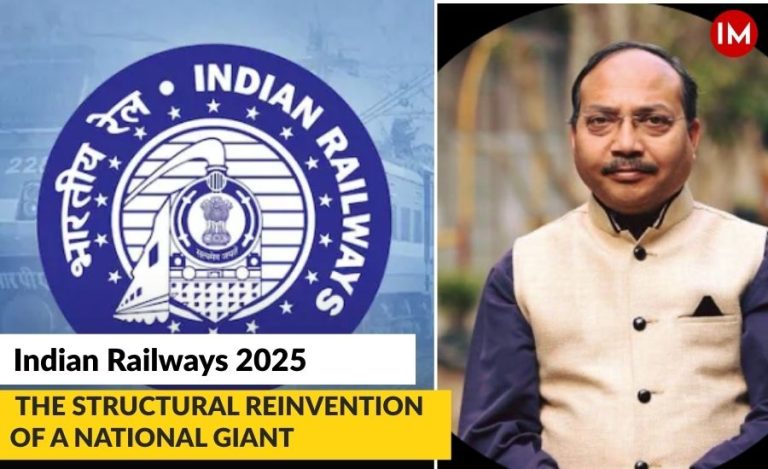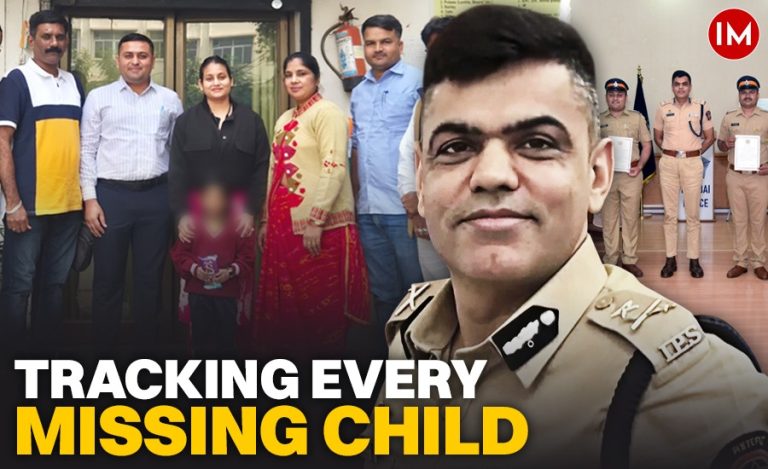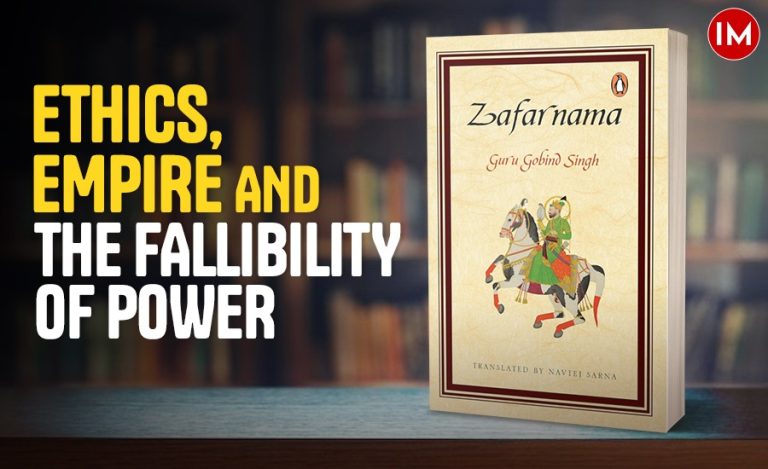Dumka, a district in Jharkhand not widely known for its literary spaces, has witnessed a quiet but meaningful transformation over the past six months. A fortnightly gathering called Book Baithak, initiated by IFS officer Satwik Vyas (2018 batch Jharkhand Cadre), who is the DFO Dumka, has begun to change how people in the town engage with books, literature, and conversation.
THE BEGINNING OF AN IDEA
The idea for Book Baithak came from Mr Vyas’s personal reading habit. “I used to read and share stories with my wife. That’s where it started,” he shared with Indian Masterminds. He had also participated in online book clubs, but those experiences lacked the immediacy and engagement of face-to-face conversation. Dumka, he realised, had no public spaces dedicated to reading or literary discussions. The idea had been on his mind for some time, and when he discussed it with a local influencer and Professor Yadavan, the response was encouraging. “Let’s do it; it’s a great idea. There’s nothing like this here,” Professor Yadavan said.
Mr Vyas’s approach was simple: even if only one person showed up, the gathering would be worthwhile. The format was informal. Participants could bring any book they had read, not necessarily new or trending works, and share their perspectives. The discussions would last about an hour, giving each participant four to five minutes to speak. By organising the sessions in Dumka Park, a public space managed by the Forest Department, the Baithak became accessible and free, blending the calm of nature with the engagement of literature.
EARLY CHALLENGES AND EVOLUTION
The first session, like any new initiative, faced uncertainty. “We didn’t know how many people would come, how they’d engage, or if someone might dominate the conversation,” Mr Vyas recalls.
Initially, most books were self-help titles or religious texts like the Gita. To maintain balance, participants were encouraged to share their understanding rather than preach or lecture. Over time, the diversity and depth of books brought to the sessions expanded. Sudha Murthy, Bertolt Brecht, and Krishna Sobti – authors whose works vary in theme, style, and complexity – have featured in recent discussions.
The format itself is distinct from conventional book clubs, where all participants read the same book. At Book Baithak, anyone can share a book they have read, whether it’s their first reading or a revisit. This freedom encourages participation and allows for multiple perspectives on a single work. Female participation, initially limited, has steadily increased. Mr Vyas notes the story of a schoolgirl who used to attend with her mother and now comes alone, signalling that the environment feels welcoming and safe.
BUILDING A COMMUNITY LIBRARY
Age is not a strict barrier at the Baithak, though the sessions, held in the evening, primarily attract young adults up to their 40s. Older participants tend to visit the park in the morning and are less likely to attend evening sessions. Importantly, there is no hierarchy or restriction on who can attend; anyone interested in books is welcome, and no judgement is passed on the type of book one brings. “The idea is that if you keep reading, you’ll naturally improve over time,” Mr Vyas says.
The initiative has inspired the creation of a small community library within Dumka Park. With 300-400 books, it allows those who cannot afford to buy new titles to borrow and exchange books. This library was inaugurated informally recently and has already begun serving as a shared resource for students, young readers, and regular Baithak attendees. A small, covered room in the park doubles as an indoor space for rainy days, ensuring that the sessions continue regardless of weather.
PARTICIPATION, INTERACTION AND FUTURE GOALS
Interactions during the Baithak sessions are often insightful. Mr Vyas recalls discussions around Sanskar by Ananth Murthy, a 1960s book on women’s empowerment. Listening to young girls share their thoughts offered perspectives different from those of boys, highlighting the variety of interpretations literature can generate. Other attendees, including professors and postgraduate students, bring high-quality works, enriching the conversation further. IFS Satwik Vyas also ensures that discussions remain focused on books rather than personal opinions or advice from unrelated areas. A notice in the library reads, “Don’t get caught up in left-right debates; fight with books, not WhatsApp forwards,” reinforcing the idea that the focus should remain on reading and discussion.
The response from the community has been steady. While attendance fluctuates with weather and other commitments, a core group of 10-15 regulars participates consistently. “Those who come once usually try to come regularly,” Mr Vyas notes. Beyond the sessions, participants often form smaller groups to continue conversations, exchange books, and recommend titles for future meetings.
Looking ahead, Mr Vyas hopes the Baithak will continue even after his tenure in Dumka ends. He is keen to involve local influencers and educators in managing and sustaining the initiative. The goal is not to create a space dependent on one person but to cultivate a culture of reading and discussion that can thrive independently.
IFS officer Satwik Vyas envisions a network of similar small-scale libraries and reading sessions across India. Offering free access with the simple incentive of bringing a book, he believes, can encourage more people to read. “If every park had a small facility like this – a shelf with books – it could make a difference,” he says. For him, reading is not just a pastime but a way to connect people, ideas, and generations, even in a small town like Dumka.
With every session, Book Baithak quietly reinforces the value of books in public life, showing that even in places where literary culture has been limited, the desire to read and discuss can flourish when given a welcoming space.

